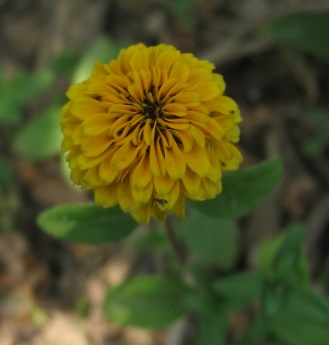Biology Forum › Community › General Discussion › Name game
- AuthorPosts
- January 30, 2006 at 10:30 am #3404
 Dr.SteinParticipant
Dr.SteinParticipantLet’s study while play 😉
We know that it is hard to remember scientific name (binomial nomenclature), so c’mon let’s play with it. Write a real and available scientific name you can remember (can be plants, animals, microbes) and the common name for it, but not that easy, you must start your name after the last character of the previous post… Understood? Confused? Aarrggh, I know I am bad at making sentences 🙁 😆 Well, see the example:
#1 post: Hippocampus erectu[b]s[/b] = Lined seahorse; northern seahorse (U.S.A.)
#2 post: Sagittaria latifoli[b]a[/b] = Broadleaf Arrowhead, Wapato
#3 post: Aspergillus fumigatu[b]s[/b] =
etc.
Don’t forget to write the name in proper way as Carollus Linnaeus told 😉 If you have figure for your species, it would be nice 🙂
Ok, I start with this one: Panax ginsen[b]g[/b] = Korean ginseng

(It seems like a sexy hairy man, isn’t it? :lol:) - January 30, 2006 at 3:14 pm #38933
- January 31, 2006 at 2:42 am #39001
 alextempletParticipant
alextempletParticipantAmbulocetus natans
- January 31, 2006 at 2:43 am #39002
 alextempletParticipant
alextempletParticipantSorry, I forgot to explain what it is. 😳 It’s an early form of amphibious whale, lived about 50 million years ago.
- January 31, 2006 at 6:38 am #39029
 Dr.SteinParticipant
Dr.SteinParticipantSaccharomyces cerevisiae = yeast

- January 31, 2006 at 7:43 pm #39101
 MrMisteryParticipant
MrMisteryParticipantEquus caballus – horse
Made the thread sticky and moved to general discussion.
- February 1, 2006 at 2:57 am #39143
 x_forensics=life_xParticipant
x_forensics=life_xParticipantSynemon sophia
Its just a lovely Orange-Spotted Sun Moth. ok? lol
- February 1, 2006 at 8:51 am #39160
 Dr.SteinParticipant
Dr.SteinParticipantAstrosarkus idipi
A new genus and species of Oreasteridae (Valvatida; Asteroidea) from the central Pacific and southern Indian Oceans.
http://www.geology.uiuc.edu/~fossils/Ch … /Astro.pdf
- February 1, 2006 at 10:26 am #39185
 baikuzaParticipant
baikuzaParticipantIpomea batatas
hm… i think every one know this.
(i’m in a lazy periode. so i’m sorry)use this
http://nature.jardin.free.fr/grimpante/ … tatas.html - February 1, 2006 at 2:41 pm #39209
 canalonParticipant
canalonParticipantSalmonella enterica subsp enterica ser. Emek.
One of the few thousands serovars of the Salmonella genus. Nothing special but it gives a more challenging last letter. Otherwise with Latin we will soon have exhausted species with names starting with S, A, I and E…
- February 1, 2006 at 7:22 pm #39241
 CarolynparsonsParticipant
CarolynparsonsParticipantKochia scoparia ~ Mexican Fireweed
Perhaps the last letter in the common name would be better and therefore not exhausting S, A, I, and E.
- February 1, 2006 at 10:11 pm #39253
 x_forensics=life_xParticipant
x_forensics=life_xParticipantAra Macao
Scarlet Macaw 🙂
- February 2, 2006 at 1:30 am #39267
 alextempletParticipant
alextempletParticipantOrcinus orca
the killer whale
- February 2, 2006 at 1:59 am #39271
 canalonParticipant
canalonParticipantArabidopsis thaliana
The plant geneticist favorites. From the brassica (mustard and cabbage) family.
- February 2, 2006 at 2:55 am #39280
 alextempletParticipant
alextempletParticipantAndrewsarchus mongoliensis
A carnivorous mammal actually more closely related to modern hooved mammals like horses and cattle than to modern carnivores. Believed to be the largest carnivorous mammal ever to live on land, lived about 60 to 32 million years ago.
- February 2, 2006 at 9:58 am #39308
 NavinParticipant
NavinParticipant - February 2, 2006 at 11:40 am #39313
 victorParticipant
victorParticipantOrthohepadnavirinae
a subfamily of Hepadnaviridae where a dissease causing agent named Hepatitis B been grouped into…:lol: - February 2, 2006 at 6:45 pm #39332
 MrMisteryParticipant
MrMisteryParticipantEscherichia coli
The most studied bacteria in the history of microbiology, the first bacteria to have it’s whole genome known. Used for a great number of purposes, such as producing artificial insulin
- February 3, 2006 at 12:40 am #39390
 alextempletParticipant
alextempletParticipantIndricothereum perum
A giant hornless rhinoceros that lived 20 or 30 million years ago; believed to have been the largest mammal ever to live on land.
http://www.prehistory.com/indricth.htm
And Mr Mistery, I wanted to do E. coli! 👿
- February 3, 2006 at 11:44 am #39450
 victorParticipant
victorParticipantMacaca rhesus.
you’ve known it already..:wink: - February 3, 2006 at 12:14 pm #39457
 SquawkboxParticipant
SquawkboxParticipantStaphylococcus aureus A lovely skin infecting bacteria 😯
- February 3, 2006 at 12:35 pm #39462
 MrMisteryParticipant
MrMisteryParticipantStreptococcus piogenes
A type of bacteria that causes scarlat fever.. Very nasty desease
By the way victor, in my book it is Macaccus rhesus - February 3, 2006 at 1:32 pm #39478
 Alish24Participant
Alish24ParticipantSphaerotillus natans
A bacteria which is a water quality indicator organism.. - February 4, 2006 at 1:17 am #39527
 x_forensics=life_xParticipant
x_forensics=life_xParticipantSmilisca baudinii
Mexican Tree Frog 🙂
- February 4, 2006 at 11:55 pm #39671
 SquawkboxParticipant
SquawkboxParticipantima stuckia!
- February 5, 2006 at 2:13 am #39673
 canalonParticipantquote Squawkbox:ima stuckia!
canalonParticipantquote Squawkbox:ima stuckia!Not a valid name. It should have read iam stuckia! anyway. And you forget the definition, bacteria causing the writers block. But I restart from the one before, let’s be serious everyone:
ilex aquifoliu m or english Holly. The holiday season is finished, but I wouldn’t mind a few extra days off 😉 - February 5, 2006 at 12:53 pm #39721
 sachinParticipant
sachinParticipantAaptosyax grypus
Actinopterygii (ray-finned fishes)
A large fast-swimming predator, feeding on fish of the middle and the upper water levels. Although most common along the Thai-Lao border at the mouth of the Mun River, its numbers have drastically decreased in recent years. This is perhaps due to dam construction or excessive gill netting, to which active pursuit predators, like this species, are particularly vulnerable (Ref. 12693). Undertakes upstream migration at the same time as Probarbus sp. in December-February (Ref. 37770) which may be related to spawning activity (Ref. 9497). Attains over 30 kg (Ref. 9497).
http://filaman.ifm-geomar.de/Photos/PicturesSummary.cfm?ID=16239&what=species
- February 5, 2006 at 1:40 pm #39746
 NavinParticipant
NavinParticipantDidn’t anyone spot the mistake?
It’s on page 2 right after my post. I used the word Strelitzia Reginae then Victor used the word Orthohepadnavirinae which begins with an O when it should have begun with an E.
- February 5, 2006 at 2:05 pm #39757
 SquawkboxParticipant
SquawkboxParticipantyeh i did just couldnt be bothered pointing it out
Methanocorpusculum
iregular cocci-archea which produce methane (correct me if im wrong cos its ages since i did this) - February 5, 2006 at 3:13 pm #39773
 sachinParticipant
sachinParticipantMacrochelys temminckii
Alligator Snapping Turtle
Large streams and rivers; impoundments; river swamps

- February 6, 2006 at 7:31 pm #39917
 SquawkboxParticipant
SquawkboxParticipantIgnicoccus islandicus Another archea 🙂
- February 6, 2006 at 9:03 pm #39926
 PoisonParticipant
PoisonParticipant - February 7, 2006 at 4:44 pm #40038
 SquawkboxParticipant
SquawkboxParticipantAspergillus fumigatus Its a Fun Guy!
(there is a fatal flaw in this game which is that there are standard endings for latin words so we have a limited choice of 1st letteres but hey, we seem to be doing ok) - February 7, 2006 at 9:18 pm #40060
 PoisonParticipant
PoisonParticipant - February 7, 2006 at 9:28 pm #40064
 SquawkboxParticipant
SquawkboxParticipantSaccaromyses cercvisiae
Bakers Yeast
mmmmm……fresh bread - February 7, 2006 at 9:48 pm #40067
 PoisonParticipant
PoisonParticipant - February 8, 2006 at 3:50 am #40093
 cardiorrhexisParticipant
cardiorrhexisParticipantisospora coccidiosis…
another protazoa…

- February 8, 2006 at 10:58 am #40161
 SquawkboxParticipant
SquawkboxParticipantStreptococcus pyogenes

Group a streptococcus found in blood - February 8, 2006 at 1:38 pm #40179
 zami’87.Participant
zami’87.ParticipantSalamandra atra black salamander
- February 8, 2006 at 2:35 pm #40182
 sachinParticipant
sachinParticipantAfroedura transvaalica
Flat-tailed Geckos
- February 8, 2006 at 6:49 pm #40197
 MrMisteryParticipant
MrMisteryParticipantArabidopsis thaliana
Owing to it’s small size, rapid life cycle, and small genome Arabidopsis was the first plant to have it’s entire genome sequenced… About 26000 genes, very close to homo sapiens… 😆
Very important:
1. Write all names as you should- italic, first letter capital
2. Please write larger explanations
3. Let’s try to find important stuff(don’t do like us mods and say Entamoeba coli
A protozoan ) 😆 😆 😈 😈Regards,
Andrew - February 8, 2006 at 7:12 pm #40200
 February BeetleParticipant
February BeetleParticipantArmadillium vulgare the common pill bug or roly poly! It is a terrestrial crustation. I just did a report on it and it is one of the few scientific names I know. It lives 2-3 years and it can detoxify metals after ingesting them by de-ionizing them.
- February 8, 2006 at 7:30 pm #40202
 opuntiaParticipant
opuntiaParticipantEchinopsis zucc. – sea-urchin cactus or Easter lily cactus
- February 8, 2006 at 11:49 pm #40217
 alextempletParticipant
alextempletParticipantCanis lupus
grey wolf, that was easy! 😀
- February 9, 2006 at 8:16 am #40260
 Dr.SteinParticipant
Dr.SteinParticipantWow, I am happy to see this thread growing 🙂
Good luck to all students who post in here 😉Sign,
Dr.Stein - February 9, 2006 at 8:31 am #40265
 opuntiaParticipant
opuntiaParticipantSus verrucosus– Warty Pig
- February 9, 2006 at 8:34 am #40267
 armyParticipant
armyParticipantOryza sativa
It’s rice - February 9, 2006 at 8:39 am #40268
 armyParticipant
armyParticipant - February 9, 2006 at 8:56 am #40273
 opuntiaParticipant
opuntiaParticipantIsatis tinctoria-woad
An annual Old World plant in the mustard family, formerly cultivated for its leaves that yield a blue dye.
- February 9, 2006 at 8:56 am #40274
 Dr.SteinParticipantquote MrMistery:Very important:
Dr.SteinParticipantquote MrMistery:Very important:
1. Write all names as you should- italic, first letter capital
2. Please write larger explanations
3. Let’s try to find important stuff(don’t do like us mods and say Entamoeba coli
A protozoan ) 😆 😆 😈 😈Regards,
AndrewGood boy! Thanks. However, mods are also have to follow the rules ja? 🙂
- February 9, 2006 at 11:35 pm #40343
 alextempletParticipant
alextempletParticipant - February 10, 2006 at 3:50 pm #40422
 PoisonParticipantquote Dr.Stein:quote MrMistery:Very important:
PoisonParticipantquote Dr.Stein:quote MrMistery:Very important:
1. Write all names as you should- italic, first letter capital
2. Please write larger explanations
3. Let’s try to find important stuff(don’t do like us mods and say Entamoeba coli
A protozoan ) 😆 😆 😈 😈Regards,
AndrewGood boy! Thanks. However, mods are also have to follow the rules ja? 🙂
Rules? OK. Enjoy your game then. I’m not that clever to give large explanations.
By the way, Entamoeba coli is nothing more than a protozoan to me.
Whatever, have a nice game. - February 11, 2006 at 10:33 pm #40556
 shamim khajaParticipant
shamim khajaParticipant[u]Staphylococcus aureus[/u] — a gram positive bacteria , found in bunches of grapes. Seen as golden yellow colonies.
- February 12, 2006 at 12:52 pm #40604
 SquawkboxParticipant
SquawkboxParticipantSalmonella typhi funnily enough this is the bacteria which causes Typhoid Fever.
- February 12, 2006 at 3:12 pm #40625
 MrMisteryParticipant
MrMisteryParticipantOh, come on Ozge.. You know that i didn’t mean any harm. It’s just that i’d like everyone to actually learn something from this game. I mean, probably Entamoeba coli is not that important, but noone will remember it unless someone writes something about it. I just wanted to keep everything nice and educational. Sorry if i upset you… Please forgive me..
We wouldn’t want to lose such a good player as yourself.. 😉By the way, wasn’t Salmonella typhi already mentioned?
- February 12, 2006 at 8:21 pm #40654
 PoisonParticipant
PoisonParticipantYes I know you didn’t mean any harm. Those short explanations are probably a result of my education. I mean we only memorize names. ( By the way I will have to memorize 144 (minimum) insect names this term- awfull… 🙁 ) Having further info about them means probably a brain explosion or something. 🙂
- February 13, 2006 at 6:32 pm #40773
 MrMisteryParticipant
MrMisteryParticipantI don’t think so… For me, it’s a lot harder to memorise something without actually knowing what it is and what it does… Understanding always helps you remember something… I reccomend the same thing with those insect names: learn something, at least 1-2 lines about each insect, look at a picture, anything to actually add utility to your learning
PS: why on Earth would anyone ask you to learn something without even knowing what it is?!
PPS: So, what exactly is Entamoeba coli 😆
- February 13, 2006 at 8:09 pm #40789
 SquawkboxParticipant
SquawkboxParticipantok i change it if you dont like repetition and theres not a lot you can say about bacteria except the infection they cause but this is a good one
Streptomyces coelicolor
This is a bacterium which lives in the soil and gives soil that smell that it has…it is specieal because where most bacteria have a single stranded circular chromosome, Streptomyces coelicolor has a single stranded linear chromosome 😀 - February 13, 2006 at 8:24 pm #40795
 PoisonParticipantquote MrMistery:PS: why on Earth would anyone ask you to learn something without even knowing what it is?!
PoisonParticipantquote MrMistery:PS: why on Earth would anyone ask you to learn something without even knowing what it is?!I have no idea about that. 🙂 Oh, wait a minute, we know about them, they are "insects". 😆
quote MrMistery:PPS: So, what exactly is Entamoeba coli 😆From wikipedia:
Entamoeba coli is a non-pathogenic species of entamoebid that is important clinically in humans only because it can be confused with Entamoeba histolytica, which is pathogenic, on microscopic examination of stained stool specimens. A simple finding of Entamoeba coli trophozoites or cysts in a stool specimen requires no treatment.
Systematics:
Kingdom: Protista
Phylum: Amoebozoa
Order: Entamoebida
Genus: Entamoeba
Species: E. coli
PS: Is it OK, Andrew? If not I will prepare a PhD thesis about that for you. 😆
- February 14, 2006 at 9:39 am #40850
 Dr.SteinParticipantquote Poison:quote Dr.Stein:quote MrMistery:Very important:
Dr.SteinParticipantquote Poison:quote Dr.Stein:quote MrMistery:Very important:
1. Write all names as you should- italic, first letter capital
2. Please write larger explanations
3. Let’s try to find important stuff(don’t do like us mods and say Entamoeba coli
A protozoan ) 😆 😆 😈 😈Regards,
AndrewGood boy! Thanks. However, mods are also have to follow the rules ja? 🙂
Rules? OK. Enjoy your game then. I’m not that clever to give large explanations.
By the way, Entamoeba coli is nothing more than a protozoan to me.
Whatever, have a nice game.Why do I think this sound a bit…err…rude? 🙄 Sorry.
- February 14, 2006 at 6:16 pm #40895
 MrMisteryParticipant
MrMisteryParticipantOzge was mad at me because i picked on her Entamoeba coli. But now we made up 🙂
- February 15, 2006 at 8:02 am #40954
 Dr.SteinParticipant
Dr.SteinParticipantShe can PM you to yell at you, not get mad in my thread 👿 😛
- February 15, 2006 at 6:30 pm #40993
 MrMisteryParticipant
MrMisteryParticipantCome to think of it, what can generate an immune response? Sorry but i don’t know ANY immunology
- February 15, 2006 at 9:46 pm #41002
 PoisonParticipantquote Dr.Stein:She can PM you to yell at you, not get mad in my thread 👿 😛
PoisonParticipantquote Dr.Stein:She can PM you to yell at you, not get mad in my thread 👿 😛Sorry, won’t write again.
- February 16, 2006 at 8:35 am #41056
 Dr.SteinParticipantquote MrMistery:Come to think of it, what can generate an immune response? Sorry but i don’t know ANY immunology
Dr.SteinParticipantquote MrMistery:Come to think of it, what can generate an immune response? Sorry but i don’t know ANY immunologyThings can generate immune response: pathogen, antigen, allergen, hapten, all comes from amino acids/peptide/protein 8)
- February 17, 2006 at 1:35 am #41109
 JwrightParticipant
JwrightParticipantBalaenoptera .Genus
the blue whale one of the rorquals, a family that also includes humpback whale, and fin whale
- February 18, 2006 at 3:22 pm #41222
 alextempletParticipant
alextempletParticipantAustralopithecus africanus
An ape that lived about three million years ago that is believed to be the ancestor of the genus Homo, and therefor the ancestor of modern-day humans.
- March 7, 2006 at 7:47 pm #42711
 MrMisteryParticipant
MrMisteryParticipantHey what happened to this thread? Let’s bring it back to life:
Streptomyces noursei
Only one of the species of the Streptomyces genus that produces antibiotics. Over 500 different antibiotics have been isolated from bacteria belonging to the streptomyces genus. this particular species produces an antibiotic called micostatine(translation?) - March 8, 2006 at 4:01 am #42753
 alextempletParticipant
alextempletParticipantI was wondering how long it would take for someone to come up with an answer. I feel proud to have stumped everyone for so long. Now I just have to figure out how to unstump myself and come up with an answer to MrMistery’s post! 😛
- March 8, 2006 at 6:16 pm #42800
 MrMisteryParticipant
MrMisteryParticipantPeople weren’t stumped, there are a lot of organisms whose names begin with S.
PS: I chose that species on purpose, to get a more interesting letter. - March 8, 2006 at 11:16 pm #42838
 alextempletParticipant
alextempletParticipantWhy must you ruin my comforting misconception? 😥
- April 16, 2006 at 2:23 am #46223
 LinnParticipantquote :species produces an antibiotic called micostatine(translation?)
LinnParticipantquote :species produces an antibiotic called micostatine(translation?)hmm? I think I just read that the other day,
but alas it has fled from my brain. 😳Is micostatine an anti biotic and anti -fungal?
Or am I thinking of something else?what happened to DRStein
I miss her, and her funny posts. - May 5, 2006 at 6:18 pm #47951
 rgParticipant
rgParticipantPsidium guajava
it is guava plant whose fruit is very common - June 5, 2006 at 9:11 pm #49567
 far-outParticipant
far-outParticipantAphyosemion sjoestedti
Multicolored killifish from West Africa:

- June 14, 2006 at 3:13 pm #50042
 kilroykelimParticipant
kilroykelimParticipanthi
you talked about the game
it is so good and fun but i did not get it the right way pliz may you send me a mail of how to play it on my mail kilroykelim@yahoo.co.uk - June 15, 2006 at 12:37 pm #50107
 LinnParticipant
LinnParticipantI dont think any one is playing any more.
The last question is yet un answered. 😕 - August 1, 2006 at 10:44 pm #52627
 nathalia_dejongeParticipant
nathalia_dejongeParticipanti didn’t get how to play the name game while working.
can u send the direction how to play the game 🙂 😆 😉 - August 2, 2006 at 12:31 am #52628
 canalonParticipant
canalonParticipantBasically give the name of an animal (binomial latin name) that starts with the last letter of the one before. You should know about the animal you use. Post a pic and give its vernacular name.
- August 9, 2006 at 7:20 am #52982
 white featherParticipant
white featherParticipantIguana iguana
The green iguana is a reptile found throughout Central and South America.
While it is not generally an endangered animal in some places, like Belize, it is because of hunting. Large females are the favorite individuals to harvest. Unfortunately, these same individuals are critical to the reproductive success of the species. As a food source, the green iguana is also known as the "Bamboo Chicken". - September 20, 2006 at 10:23 am #55077
 kjleParticipant
kjleParticipantArmina Californica
Striped Nudibranch
mmm I do love my marine biology

- September 21, 2006 at 5:44 am #55126
 geonyzlParticipant
geonyzlParticipantPithecophaga jeffeyi – – – the Philippine Eagle 😀
- September 21, 2006 at 3:16 pm #55155
 canalonParticipantquote geonyzl:Pithecophaga jeffeyi – – – the Philippine Eagle 😀
canalonParticipantquote geonyzl:Pithecophaga jeffeyi – – – the Philippine Eagle 😀Sorry not a good answer. I remind everyone that the rule is to give a name that starts with the lasts letter of the one just before. In this case an A
I suggest the well known, to all plant biologists, bacteria used to transfer genes thanks to its Ti plasmid in plant genome:
Agrobacterium tumefasciens
- September 21, 2006 at 3:29 pm #55157
 DustfingerParticipant
DustfingerParticipantIsn’t it tumefaciens ? Not tumefasciens.
- September 21, 2006 at 6:53 pm #55175
 canalonParticipant
canalonParticipantPossible. I di not check the spelling. And in doubt I always chose the most complicated (usually work in french ;))
- September 23, 2006 at 12:56 pm #55250
 kjleParticipant
kjleParticipantSolaster dawsoni
Morning Sunstar

- September 29, 2006 at 3:22 pm #55640
 lyricenParticipant
lyricenParticipantIcerya purchasi Maskell – Cottony cushion scale
This insect is a true bug in the Family Margarodidae. It is native to Australia where acacia plants serve as its host. Around 1870 it was accidentally introduced to California on imported acacia plants. The insect successfully colonized its new land and discovered a new host plant, citrus. The insect caused huge damage to the citrus plants in California which resulted in great economic damage.
Riley, the Federal Entomologist at the time, sent some folks over to Australia to look for natural enemies of the scale insect. They found, brought back and released a ladybug (Rhodalia cardinalis) and a parasitic fly (Cryptochaetum iceryae). The effort was a great success and is considered the first scientifically driven and institutionally backed biological control effort.
Unfortunately, some of the citrus growers in California thought the success was so magnificent that they packed up some ladybugs on citrus leaves and mailed them to Florida, where there was no scale present. However, when growers opened the shipment of ladybugs in Florida, scale was released with them and, since then, cottony cushion scale has been present in Florida.
Cottony cushion scale is now widespread throughout the world and can be found pretty much where ever citrus is growing.
- September 29, 2006 at 4:23 pm #55651
 alextempletParticipant
alextempletParticipantIguanadon bernissartensis
The first dinosaur species to be officially documented.
- October 5, 2006 at 2:52 pm #56030
 AmrikParticipant
AmrikParticipantSalmonella enteritidis
a gram negative rod shape bacteria…..causes food poisonin…if i m not wrong 😳Ps. U noe y i lyk to play these kind of games….it helps improve my knowledge and thts wat i want!…i want to improvee my biological knowledge…i have a lot more to learn… 😆 and do u noe how..hehe…to find these things i google it or use wikipedia….and wen i find a binomial nomenclature name for the alphabhet i need..i jus dont copy and paste the name here..its my habbit to read wats open..and wen i read…u noe it now wat happens next :p
- October 6, 2006 at 3:33 pm #56086
 AmrikParticipant
AmrikParticipanty is tht no one is continueing..? ^^….i want to play more…hehe
- October 6, 2006 at 5:27 pm #56090
- October 8, 2006 at 12:45 pm #56166
 AmrikParticipant
AmrikParticipant - October 12, 2006 at 6:15 am #56415
 pyrophoenixParticipant
pyrophoenixParticipantSolanum tuberosum
POTATO - October 12, 2006 at 2:08 pm #56443
 AmrikParticipant
AmrikParticipantMycobacterium tuberculosis
A Bacteria That Causes Tuberclosis
- October 13, 2006 at 2:54 am #56477
 LinnParticipant
LinnParticipantSciadopitys verticillata
(Japanese umbrella Pine)A beautiful conifer 🙂
http://www.cnr.vt.edu/DENDRO/DENDROLOGY … cfm?ID=672
- October 13, 2006 at 6:43 am #56491
 AmrikParticipant
AmrikParticipantAscaris lumbricoides
A parasitic roundworm!
- October 15, 2006 at 4:33 am #56645
 Condraz23Participant
Condraz23ParticipantStreptosolen jamesonii
- November 1, 2006 at 4:13 am #57797
 sachinParticipant
sachinParticipant
Indri indriThe indri is a large, distinctive lemur with a very short tail. Its pelage is very dense and the coloration a mixture of black and white. There is considerable variation in the mixture of black and white throughout the species’ range. The indri has a head and body length of more than 60 cm (24") and a tail length of only about 5 cm (about 2"). It weighs 6 – 7.5 kg (13 – 17 lb).
- December 23, 2006 at 6:59 pm #63774
 EnzymeParticipant
EnzymeParticipantMmmm… Ilex paraguariensis (mate tea).

- December 29, 2006 at 6:29 am #64189
 sachinParticipant
sachinParticipantWhite-footed Tamarin
(Other Names: Mico Tistis, Silvery-brown Bare-face Tamarin, Tamarin à Pieds Blancs, Tamarín de Manos Blancas, Titi, Titi Gris, Weißfußaffe)
Saguinus leucopus

- December 29, 2006 at 3:19 pm #64203
 EnzymeParticipant
EnzymeParticipantShigella sonnei (microorganism responsible of shigellosis).
- December 29, 2006 at 4:16 pm #64212
 sachinParticipant
sachinParticipant
Golden Bandicoot
(Other Names: Péramèle Doré, Wintarru)Isoodon auratus
- December 29, 2006 at 7:04 pm #64229
 EnzymeParticipant
EnzymeParticipantSaccharomyces cerevisiae
- December 30, 2006 at 3:41 am #64270
 sachinParticipant
sachinParticipantAsian Elephant
(Other Names: Asiatischer Elefant, Elefante Asiático, Eléphant d’Asie, Eléphant d’Inde, Indian or Asiatic Elephant)Elephas maximus

- December 30, 2006 at 9:34 am #64301
 EnzymeParticipant
EnzymeParticipant - December 30, 2006 at 9:36 am #64302
 EnzymeParticipantquote sachin_at_biog:Asian Elephant
EnzymeParticipantquote sachin_at_biog:Asian Elephant
(Other Names: Asiatischer Elefant, Elefante Asiático, Eléphant d’Asie, Eléphant d’Inde, Indian or Asiatic Elephant)That’s in Spanish, he he ;).
- December 30, 2006 at 5:40 pm #64306
 sachinParticipant
sachinParticipantDrill
(Other Name: Dril)
Mandrillus leucophaeus
The drill is found in both the Guinean Forests of West Africa
Endangered
- December 30, 2006 at 9:17 pm #64314
 EnzymeParticipant
EnzymeParticipant - December 31, 2006 at 1:22 pm #64360
 sachinParticipant
sachinParticipantCentral American Squirrel Monkey
(Other Names: Barizo Dorsirrojo, Black-crowned Central American or Red-backed Squirrel Monkey, Mono Ardilla, Mono Titi, Saïmiri à Dos Roux, Singe-écureuil à Dos Rouge or à Dos Roux)Saimiri oerstedii

So qutee… Isnt it?? 😉
- December 31, 2006 at 5:31 pm #64366
 EnzymeParticipant
EnzymeParticipant - January 1, 2007 at 5:56 am #64399
 sachinParticipant
sachinParticipantBoto (Amazon River Dolphin)
(Other Names: Amazon Dolphin, Amazonas-Delphin, Boto Vermelho, Bouto, Bufeo, Bufeo Colorado, Bufeo de Río, Dauphin de l’Amazone, Delfín Amazónico, Inia, Pink Dolphin, Pink Freshwater Dolphin, Pink Porpoise, Tonina)Inia geoffrensis

- January 1, 2007 at 4:55 pm #64416
 EnzymeParticipant
EnzymeParticipantStreptococcus pneumoniae
- January 2, 2007 at 4:08 pm #64459
 sachinParticipant
sachinParticipantPere David’s Deer
(Other Names:Cerf du Père David, Ciervo del Padre David, Père David’s Deer)Elaphurus davidianus

- January 2, 2007 at 4:49 pm #64464
 jimmystangParticipant
jimmystangParticipantSomateria spectabilis
The King Eider (Somateria spectabilis) is a large sea duck, which breeds along northern hemisphere arctic coasts of northeast Europe, North America and Asia. The lined nest is built on tundra close to the sea, and 4-6 eggs are laid.
- January 2, 2007 at 4:53 pm #64465
 sachinParticipant
sachinParticipantFrancois’ Leaf Monkey
(Other Names: Francois’ Black, Tonkin, or White-sideburned Leaf Monkey; Francois’ Langur; Langur de Francois or de François; Semnopithèque de François)
Semnopithecus francoisi - March 1, 2007 at 9:41 pm #69586
 killerParticipant
killerParticipantomfg dudes how do you know all this shit?
- March 22, 2007 at 8:03 pm #70406
 EnzymeParticipant
EnzymeParticipant - March 24, 2007 at 2:59 am #70454
 ArtCelledParticipant
ArtCelledParticipant - March 27, 2007 at 9:55 pm #70600
 brwagurParticipant
brwagurParticipant - April 7, 2007 at 7:02 am #70925
 DoubledParticipant
DoubledParticipantOceanospirillum linum
Proteobacterium that lives in marine habitats and can grow in sodium chloride concentrations as high as 9%
Edit: Bah I swear the post before mine originally ended in O!!
- April 18, 2007 at 3:02 pm #71269
 Xquisite_angelParticipant
Xquisite_angelParticipantAmarantus specie–xxxxxxxx
- May 27, 2007 at 4:51 am #73190
 geonyzlParticipant
geonyzlParticipantPithecophaga jefferyi = Philippine Eagle
- June 7, 2007 at 9:44 am #73618
 EvelynParticipant
EvelynParticipantsorry the only one i can think of is
Methecillin Resistant Staphylacoccus Aureus
MRSA
- October 5, 2007 at 7:59 pm #76672
 harrypotter101Participant
harrypotter101Participant🙂 Saritaea magnifica 🙂 = Glow Vine
 🙂
🙂 - October 10, 2007 at 11:00 am #76765
 DracoParticipant
DracoParticipantAiluropoda melanoleuca = Giant Panda.
http://en.wikipedia.org/wiki/Panda - October 12, 2007 at 3:20 pm #76818
 harrypotter101Participant
harrypotter101Participanthttp://www.nps.gov/plants/alien/fact/aial1.htm
Ailanthus altissima=Tree of Heaven - December 11, 2007 at 1:55 pm #79294
 mcarParticipant
mcarParticipantAllium cepa
–onion - December 13, 2007 at 6:50 pm #79539
- January 3, 2008 at 1:53 pm #80216
 DracoParticipant
DracoParticipantRattus rattus.
http://en.wikipedia.org/wiki/Rat - January 12, 2008 at 8:01 am #80557
 thefourthgraeaeParticipant
thefourthgraeaeParticipantsus scrofa= wild boar
- January 12, 2008 at 10:28 am #80560
 DracoParticipant
DracoParticipantAgropyron Junceiforme= Sea couch grass.
- January 22, 2008 at 1:20 am #80953
 harrypotter101Participant
harrypotter101ParticipantEichhornia crassipes=Water Hyacinth

- January 22, 2008 at 8:56 am #80968
 DracoParticipant
DracoParticipantSpartina pectinata – Prairie Cordgrass
- January 24, 2008 at 12:51 am #81059
 SgtSlaughterParticipant
SgtSlaughterParticipantAgrostemma githago (Rose of Heaven)
- January 28, 2008 at 11:01 pm #81217
 ElenParticipant
ElenParticipantOphiothrix fragilis – can’t remeber the common name, its a species of brittle star.
- January 30, 2008 at 4:15 am #81253
 harrypotter101Participant
harrypotter101ParticipantSanvitalia angustifolia~Creeping Zannia

- January 31, 2008 at 1:55 am #81280
 ElenParticipant
ElenParticipantAsterias rubens- common starfish
- February 11, 2008 at 3:31 pm #81714
 onexsoulParticipant
onexsoulParticipantSaimiri oerstedii- Red-backed squirrel monkey
- February 11, 2008 at 7:21 pm #81723
 harrypotter101Participant
harrypotter101ParticipantIxora coccinea L.=Ixora, Flame Of The Wood, Jungle Flame


- June 11, 2008 at 5:27 pm #84521
 GrrDogParticipant
GrrDogParticipant - June 18, 2008 at 11:10 pm #84632
 CatParticipant
CatParticipantNow I am confused!
A – Arabidopsis thaliana – thale cress
S – Solanum tuberosum – potatoWhichever…
- June 27, 2008 at 3:59 pm #84782
 TubbatahaParticipant
TubbatahaParticipantM – Megaptera novaeangliae for humpback whale…
- June 27, 2008 at 6:54 pm #84787
 CatParticipant
CatParticipantEscherichia coli – bacteria
- June 28, 2008 at 5:11 pm #84798
 DrDParticipantquote Cat:Escherichia coli – bacteria
DrDParticipantquote Cat:Escherichia coli – bacteriaIgnana iguana (the green iguana)
- June 28, 2008 at 8:45 pm #84802
 CatParticipant
CatParticipantAster novae-angliae – New England Aster
- June 29, 2008 at 12:21 pm #84823
 DrDParticipant
DrDParticipantEmus hirtus – a nice, large and yellow rove beetle
- June 30, 2008 at 6:57 am #84833
 shanpeterParticipant
shanpeterParticipantHi one and all,
This is Don, New to this forum.
- July 1, 2008 at 10:14 pm #84853
 himmelParticipant
himmelParticipanthello,
it’s Dr.himmelI’m new here and I want to get involved
__________________
I’ll try to contribute :
Sabin vaccine
(( vaccine against poliomyelitis ))good luck
himmel - July 3, 2008 at 2:46 am #84885
 CatParticipant
CatParticipantEpilobium angustifolium — Rose-bay Willowherb
- July 7, 2008 at 3:48 pm #84948
 TubbatahaParticipant
TubbatahaParticipantMegadyptes antipodes or Yellow Eyed Penguin
- July 7, 2008 at 4:54 pm #84951
 CatParticipant
CatParticipantSolanum lycopersicon – tomato
- December 18, 2008 at 8:57 am #87935
 David GeorgeParticipant
David GeorgeParticipantI think you mean Solanum lycopersicum
Mus musculus———-house mouse
- December 18, 2008 at 10:18 am #87936
 stopherlogicParticipant
stopherlogicParticipantStaphylococcus caprae– human skin commensal
- December 19, 2008 at 5:45 am #87948
 keenangpParticipant
keenangpParticipantElephas maximus
(Asiatic elephant)
- December 19, 2008 at 1:58 pm #87956
 David GeorgeParticipant
David GeorgeParticipantSolanum tuberosum ———potato
- December 27, 2008 at 1:01 am #88099
 MyceteaeParticipant
MyceteaeParticipantMycobacterium tuberculosis
- December 28, 2008 at 4:22 am #88125
 MikeyParticipant
MikeyParticipantStegopontonia commensalis
(Sea Urchin Shrimp)~Just thought I could join in this game =]
- December 28, 2008 at 1:34 pm #88133
 mcarParticipant
mcarParticipantStaphylococcus aureus
(I hope It wasn’t mentioned yet) - January 9, 2009 at 9:33 am #88323
 mcarParticipant
mcarParticipantSolanum tuberosum =patatas
- January 15, 2009 at 2:35 pm #88481
 David GeorgeParticipant
David GeorgeParticipanti already told that, mcar my dear…
- January 19, 2009 at 8:30 am #88542
 mcarParticipant
mcarParticipantS. aureus or S. tuberosum?
- January 26, 2009 at 2:55 am #88678
 mcarParticipant
mcarParticipantSchistosoma japonicum
I know we don’t have that yet. - February 2, 2009 at 1:45 pm #88819
 SepalsParticipant
SepalsParticipantMycobacterium Tuberculosis.
- February 4, 2009 at 3:44 pm #88842
 H4folateParticipant
H4folateParticipantSerratia marcescens
- February 5, 2009 at 11:48 am #88852
 mcarParticipant
mcarParticipantSus philippensis or Philippine warty pig and Stachyris dennistouni Golden-crowned babbler
an endemic bird in Luzon tropical pine forests. - February 23, 2009 at 2:19 pm #89288
 SepalsParticipant
SepalsParticipantStreptococcus pyogenes
- March 10, 2009 at 1:04 pm #89597
 mcarParticipant
mcarParticipantHey, perhaps your sci-name must have started with letter I already. After the Stachyris dennistouni. (Actually I’ve noticed that we had kept giving sci-names starting with S.
- March 11, 2009 at 1:44 pm #89620
 SepalsParticipant
SepalsParticipantI was following on from:
quote mcar:Sus philippensis - March 13, 2009 at 1:51 pm #89666
 mcarParticipant
mcarParticipantAlright. I repeat Stachyris dennistouni
- June 29, 2009 at 6:41 am #91619
 sumanduttaParticipant
sumanduttaParticipantIchthyophis peninsularis -it is a caecilian fish.
- September 16, 2009 at 6:38 am #92817
 JackBeanParticipant
JackBeanParticipantLet’s not end with ‘s’ anymore 🙂
Sedum rupestre – rozchodník suchomilný; Gewöhnliche Felsen-Fetthenne; in English probably Angelina or Rocky Stonecrop
http://www.biolib.cz/en/taxon/id169418/ - September 19, 2009 at 5:12 pm #92894
 CatParticipant
CatParticipantElaeagnus umbellata – Autumn olive
- September 21, 2009 at 11:03 am #92924
 JackBeanParticipant
JackBeanParticipantAtaeniobius toweri – Bluestriped Snapper, Bluetail Goodea, Bluetail Splitfin, Striped Goodea, Striped Goodeid
gudea velká 😛some kind of ray-finned fish
- June 14, 2010 at 7:43 am #100159
 brendar7639Participant
brendar7639ParticipantHello !
I am also a new member. Would a newcomer be warmly welcome here? Good day you guy ! - June 19, 2010 at 1:33 pm #100222
 AnonymousParticipant
AnonymousParticipantcool i like this game 🙂
- August 8, 2010 at 2:44 am #100794
 chemexParticipant
chemexParticipantImpatiens pallida – Yellow Jewelweed
- September 16, 2010 at 6:24 am #101291
 marthawillsonParticipant
marthawillsonParticipantHello…
This is very interesting way to learn the difficult names of biology. I seems to b interesting. - November 23, 2010 at 9:41 am #102406
 alexmax021Participant
alexmax021ParticipantI’m Alex, a totally newbie to this community. Nice to see you all and great to be a part of the community. Hope to get help from you, thank!
- AuthorPosts
You must be logged in to reply to this topic.
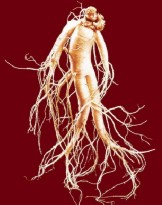



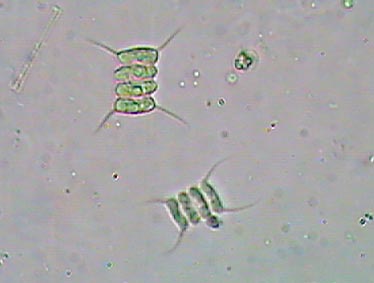
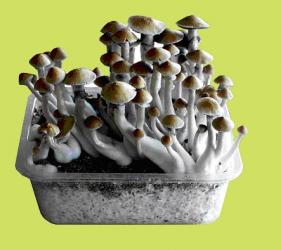
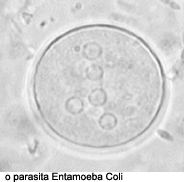

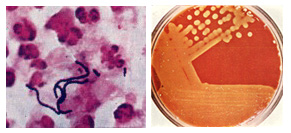


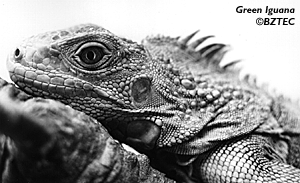


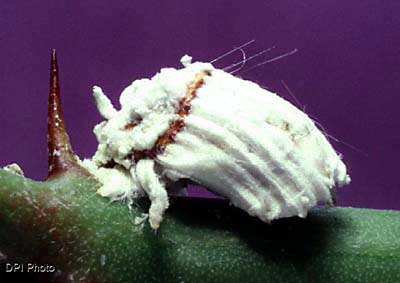
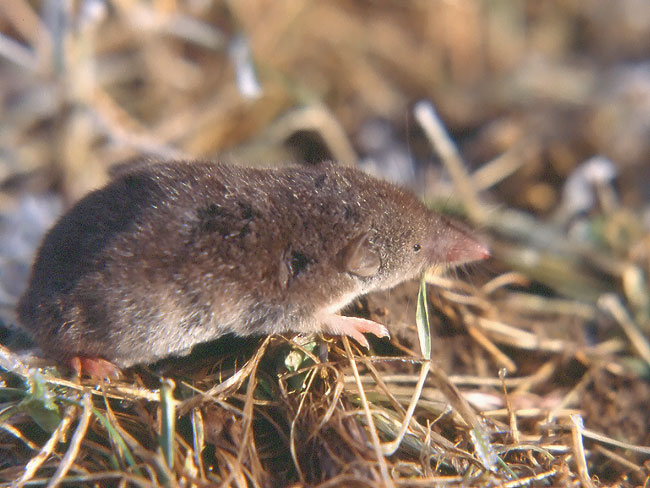
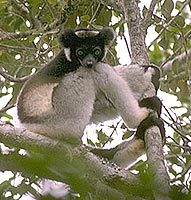




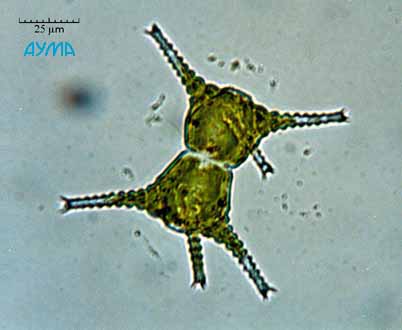

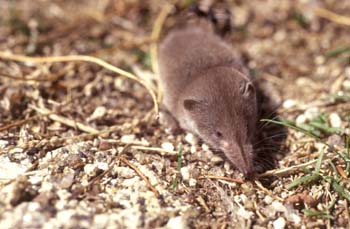








 🙂
🙂
